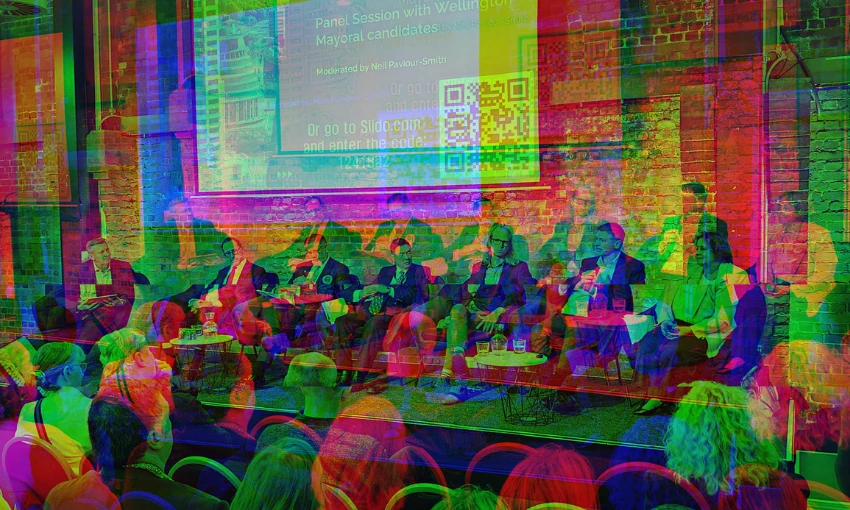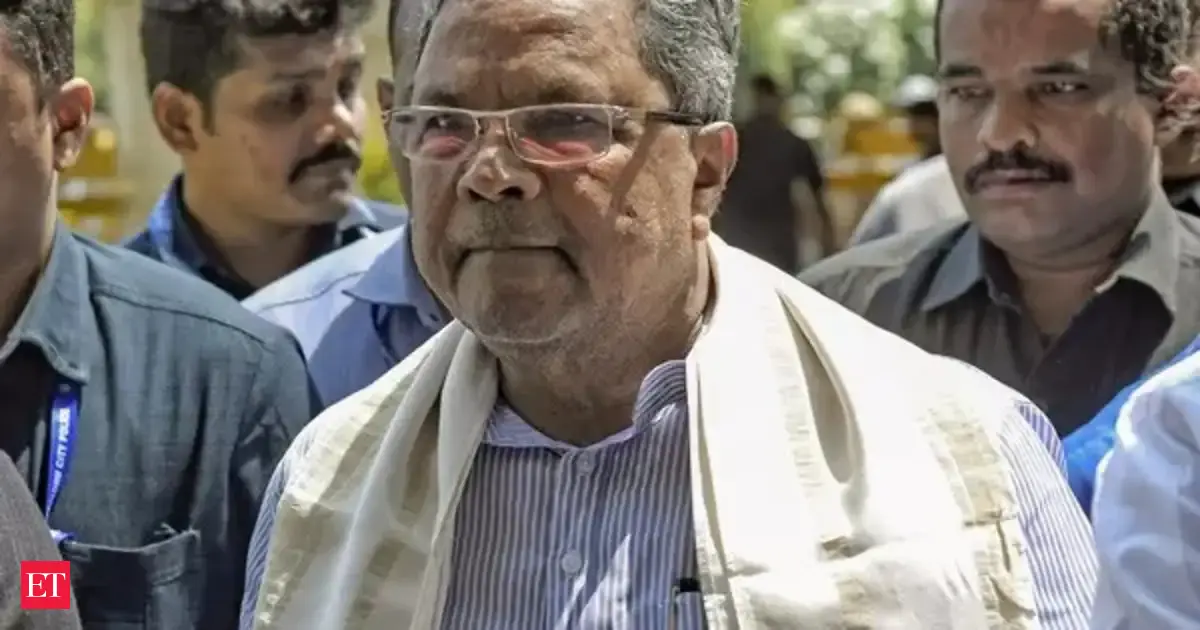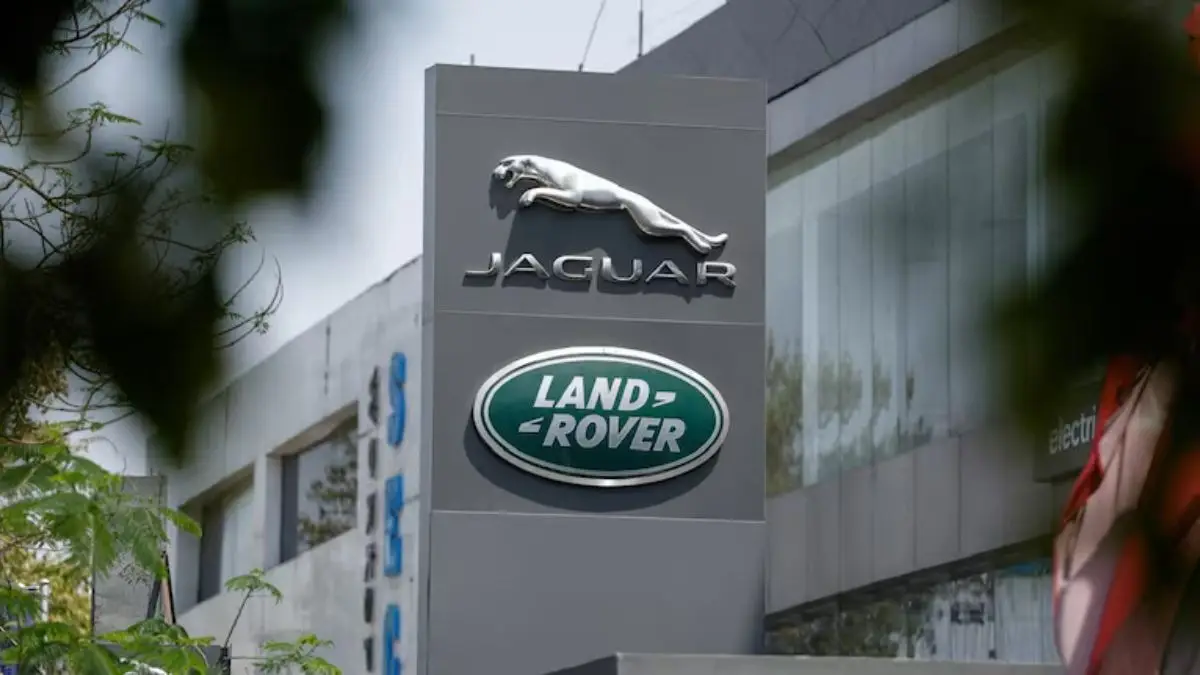By Joel MacManus
Copyright thespinoff

The political super-group presented its final ‘vision’ for the city, but is anyone still listening?
Windbag is The Spinoff’s Wellington issues column, written by Wellington editor Joel MacManus. Subscribe to the Windbag newsletter to receive columns early.
Almost a year ago, The Post’s front page declared good news: “Capital’s power brokers want city back on track”. The story, without a reporter’s byline, announced that a group of business executives calling themselves Vision for Wellington were planning to fix the city.
The members included former politicians like Kerry Prendergast and Fran Wilde, money guys like Luke Pierson and the late Sir Bob Jones, media people like Fran O’Sullivan, the Herald’s business editor, and Sinead Boucher, owner of Stuff and The Post, plus a bunch of other people who wear suits and sit on boards.
Their opening event was a star-studded affair at the Michael Fowler Centre, headlined by James Cameron. It drew a crowd of 1,000 people and was livestreamed on Stuff. In terms of substance, it basically amounted to the director of Avatar complaining about cycleways.
I wrote a sassy little article about it. Lyric Waiwiri-Smith and I covered some of their other events. At one event, the panel was asked: “How do we get rid of the main antagoniser, The Spinoff and Joel MacManus?”. It’s fair enough if you think I was unnecessarily negative about a group that was just trying to improve the city. Maybe I was. But these are powerful people, with a big budget, and the literal backing of the media. Despite their claims to be “non-political”, they formed in explicit opposition to the current council. It was an inherently political project, and that warrants some scepticism and scrutiny.
Fears that Vision for Wellington would become a de facto conservative political action committee dissipated over time, especially once Tory Whanau exited the race. They had a centre-right bent but weren’t quite as extreme as Ray Chung, leaving them with no obvious horse to back.
The panels and focus groups continued, but the media attention dwindled after that first event. Crowd sizes fell. Stuff stopped livestreaming. I’m told by a reliable source that their view counts were in the “low single digits”. The most notable event was one where they claimed to have found $2.8 billion in savings for the council. However, as highlighted by Alex Baker, those estimates were riddled with holes. For example, they suggested selling all the council’s road reserves, assuming that thousands of Wellington households would pay $30,000+ each to buy those chunks of steep, unusable land between their homes and the street. Their back-of-the-napkin math also implied that the council would close the zoo, cut almost all tourism promotion and ignore seismic work and maintenance on council buildings.
On Thursday, Vision for Wellington held a flashy final event at the Harbourside Function Centre where it presented its final “vision” (in the form of a report written by PwC staff) and asked mayoral candidates to respond to it.
The report is split into six general themes: become a city that listens, get back in business, build a compassionate capital, restore the beating heart of the city, own the biodiversity capital of the world and celebrate our wild side. If you read between the lines, you can see some hints at a pre-conceived agenda. For example, there is no discussion of making it easier to cycle, but they want more on-street parking and free parking on weekends. But for the most part, it’s hard to disagree with. It’s also not particularly original.
When you dig into the specific actions the report recommends, the substance is lacking. In my analysis, the suggestions fall into four categories:
Stuff that’s so vague it’s essentially meaningless (ie launch a “Wellington First” pledge asking elected leaders to commit publicly to Wellington’s long-term success, not political advancement).
Stuff that already exists (ie deepen the partnership with mana whenua, provide cheaper off-peak public transport, provide funding for local events in the city centre, create a biodiversity strategy).
Really complicated stuff with the details hand-waved over (ie “tackle housing affordability head-on” and “resolve rough sleeping with care and speed”).
Marketing (ie a comms campaign promoting the city as a magnet, creating tourism experiences themed around wind and rain).
The turnout at Thursday’s event was decent but unexceptional; about 150 people. Another mayoral debate immediately afterwards at Mean Doses, hosted by RNZ’s Charlotte Cook, drew a similar crowd. Vision for Wellington member Neil Paviour-Smith asked each of the mayoral candidates to describe the report in one word. He looked very pleased as they lavished praise upon his document. Andrew Little said it was “inspirational”. Karl Tiefenbacher said it was “optimistic”. Ray Chung called it “aspirational” but was wary of some of the costs. Alex Baker and Diane Calvert, who sit at opposite ends of the political spectrum, both thought it confirmed their priors, calling it “satisfying” and “validation” respectively. Baker was the only candidate who levied any criticism at the report, but even that was minor. He disagreed with the suggestion that more on-street parking would save the city centre, and disputed the inference that the city centre was dead. “When’s the last time you went out after 10pm? The good places are still humming,” he said.
For the most part, every candidate agreed with it. They all want better consultation, a better business sector, and a more vibrant city centre. The same themes that have been discussed at every other mayoral debate so far. This isn’t anything new. The beauty of this report is that it’s so broad and inoffensive that any mayoral candidate can agree with it without changing their policies, and Vision for Wellington can claim credit for just about any future council decision. But when your goal is influence, that’s not success. It’s the opposite.
I’m fascinated by Vision for Wellington because of what it says about political power in the capital. In another year, or another decade, this project could have been huge. Instead, it has been a weird, ineffectual flop. My theory is that the group got its central thesis wrong. In an opinion piece for The Post, founder Luke Pierson said Vision for Wellington formed because the city’s leaders “refuse to change direction, as if the answer to this well-established malaise is more of the same”.
They thought the problem in Wellington was a lack of ideas. That’s a very appealing problem for C-suite executives who like to consider themselves “thought leaders” and delegate the details to their underlings.
But Wellington has no shortage of ideas. We’ve spent years debating heaps of big stuff: a second Mt Vic tunnel, a long tunnel under the CBD, light rail, the Golden Mile upgrade, cycleways, bus lanes, pedestrian streets, denser housing, rates capping, land value rates, 17 different versions of water reform, and so on. If anything, council staff are overwhelmed with workstreams. They don’t have time to be chasing up vague ideas from well-meaning outsiders.
What Wellington has is a shortage of action. It’s really hard to get stuff done. That’s due partly to money and partly to politics. Wellington is a political town, and people have a lot of opinions. Every time someone tries to build an apartment or knock over a bridge, it becomes a huge fight with protests, lawyers and letters to the editor. Any truly significant change that will actually make a difference to the future of the city is going to have opposition. It won’t be some lovely idea that everyone agrees on. There will be politics.
The two most significant changes in Wellington over the past three years have been the new District Plan enabling higher-density housing and the rapid rollout of cycleways. At my recent Windbag: Live! event, I spoke to two of the architects of those changes, Marko Garlick from A City for People and Patrick Morgan from Cycling Action Network.
They both made the point that influencing policy change is actually surprisingly easy if you do the work: understanding council process, building relationships with individual councillors, and presenting them with specific and actionable policy. They didn’t just pitch ideas from the rooftops; they humbled themselves and played the game of politics.
I’ve watched a lot of council meetings, and when people fail to influence change, it’s usually because they just complain without attempting to understand. They give speeches berating councillors, fail to consider tradeoffs, imagine that everything is simpler than it is and assume the only reason anyone would disagree with them is because they’re corrupt and/or stupid. They accuse the council of not listening, but they don’t attempt to listen either. When they’re done, the meeting chair says “thanks for your input” and moves on, because they haven’t actually contributed anything that might sway anyone’s vote.
The pessimistic interpretation of Vision for Wellington is that they’ve repeated this same mistake on a bigger and more expensive scale. They’ve complained a bunch and made some overly simplistic suggestions that no one will follow through on.
The best-case scenario (and one that I genuinely hope will happen) is that Vision for Wellington will evolve into a more grassroots operation. They’ll start taking action, rather than just talking a big game and expecting others to implement their ideas for them. The part of the “vision” that I found the most interesting, and which the Vision for Wellington crew has the most ability to influence, is the section about boosting business. There are some good ideas here, if executed properly: creating new business development programmes, launching a startup advisory panel, and appointing civic ambassadors for key industry sectors.
No one is stopping Vision for Wellington from doing that. It would be a great thing for the city, and I’m sure the council would be happy to work with them. They could do it right now. They could have done it a long time ago. There was never any need to spend a year hosting all those panel events.



